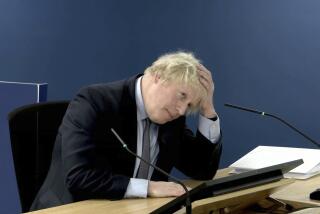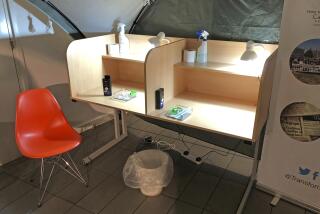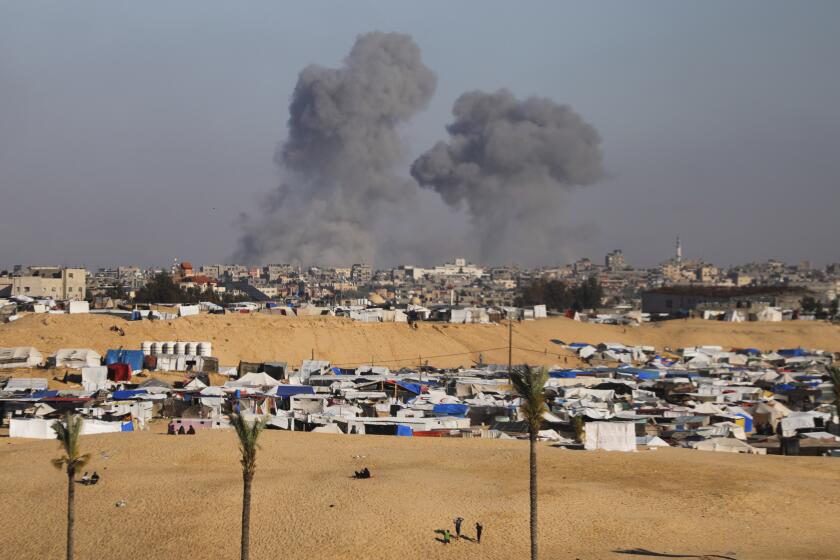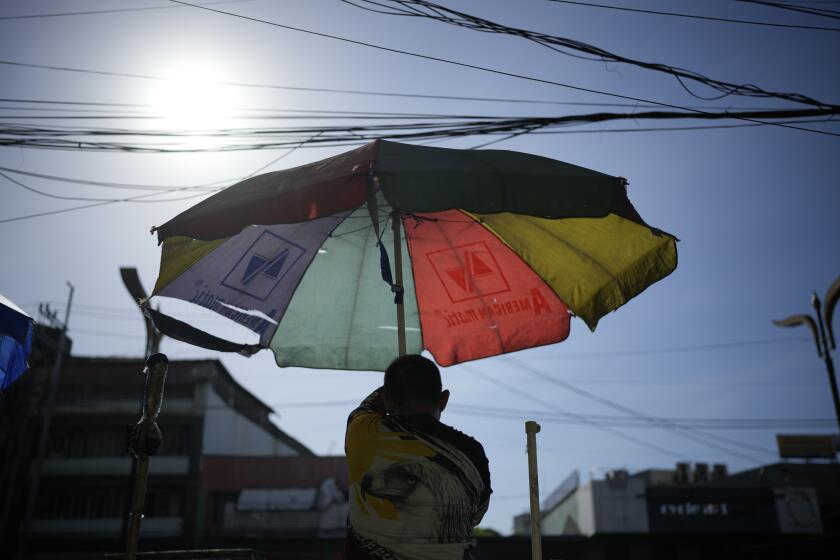Scottish nurse with Ebola now in critical condition, doctors say
The Scottish nurse being treated for Ebola in a London hospital is now in a critical condition, doctors said Saturday.
A brief statement issued by the Royal Free Hospital said it was “sorry to announce that the condition of Pauline Cafferkey has gradually deteriorated over the past two days.”
The 39-year-old nurse was diagnosed with the deadly virus after returning to Glasgow on Dec. 28 from spending more than a month treating Ebola patients at a Save the Children treatment center in Sierra Leone.
She was flown to London for treatment on a Royal Air Force Hercules and has been in a state-of-the-art isolation unit and surrounded by medical staff 24 hours a day.
On New Year’s Eve, Dr. Michael Jacobs, an infectious disease specialist who is part of the team treating Cafferkey, said she was sitting up in bed, talking and reading and had been able to speak to her family through protective screens.
She was being treated with an experimental antiviral drug and given blood plasma from one of Europe’s Ebola survivors.
Jacobs said he was encouraged by her progress but warned that Ebola was highly unpredictable and her recovery was far from guaranteed.
Scotland’s First Minister Nicola Sturgeon posted a message of support on Twitter shortly after the hospital statement Saturday.
“My thoughts are with Pauline & her family at this extremely difficult time. Thanks to all who are caring for her,” it read.
Cafferkey’s case has raised questions about the efficacy of Britain’s Ebola screening process after it emerged that she told ground staff at London’s Heathrow airport that she felt ill shortly after arriving in London from Sierra Leone via Casablanca.
Officials said she passed seven temperature checks at Heathrow but her reading was never above the 99.5-degree threshold set by the government health agency and she was cleared to board a final flight to Glasgow.
She is Britain’s second Ebola patient, but the first to develop symptoms while on British soil.
The first, William Pooley, was diagnosed in Sierra Leone and successfully treated at the Royal Free Hospital. He has since returned to West Africa to help those battling the disease.
Boyle is a special correspondent.
More to Read
Start your day right
Sign up for Essential California for news, features and recommendations from the L.A. Times and beyond in your inbox six days a week.
You may occasionally receive promotional content from the Los Angeles Times.






